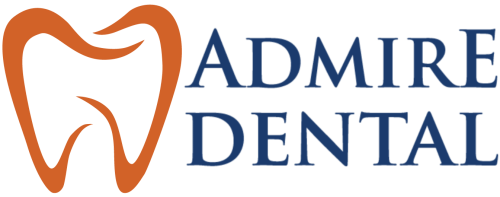Tips for How to Prevent Cavities in Children and Adults
Dental health is more than just having a smile. It’s an essential aspect of general health. Caries in the mouth, also called dental caries, are among the most frequent dental health problems that affect both adults and children. Understanding how to prevent getting dental caries is a way of getting rid of pain, costs, and health issues in the coming years. So, it becomes very important to know about How to prevent cavities in children and Adults with the help of Admire Dental Fall River.
Complete details about what is a Dental Cavity:
What Are Cavities?
They are permanently marked on the surface of the tooth. They can form tiny holes or gaps. They could result from a variety of causes, such as oral bacteria that are consumed in large quantities drinking a lot of sweet beverages, or simply not taking care to clean your teeth regularly.
How does dental cavity form in Children & Adults?
Cavities develop when plaque, that is a sticky layer composed by bacteria, is created within your teeth. Plaque-forming bacteria make acid that causes the deterioration of the enamel on your teeth. As time passes the acids cause cavities.
Signs and Symptoms of Cavities:
Early Warning Signs
In the beginning, there may be white areas on your teeth, that indicates that mineral deposits have been taken out. There is an opportunity to experience sensitive teeth following eating sweets that are hot, cold, or hot.
Advanced Symptoms
When the intensity of dental cavities grows, there are signs that you might be noticing dental holes and you may feel pain or toothache. You may also notice spots of staining on the surface of your teeth. They can range from brown to white or black.
Daily Oral Hygiene Practices for How to prevent cavities in children and Adults:
Brushing Techniques
Make sure you wash your teeth at least two times each day using fluoride toothpaste. Make use of a soft-bristled toothbrush and replace it every 3 to 4 months. Brushing should take at least two minutes, and make sure you’ve thoroughly scrubbed the teeth’s surface.
Importance of Flossing
Make sure to floss each day to eliminate food particles and plaque between your teeth and below the gumline, which your toothbrush can’t get to. This can help prevent gum disease and cavities.
Using Mouthwash
Dental Cleaning using a fluoride rinse can lower plaque and help prevent dental cavities. Choose the mouthwash with antibacterial ingredients to prevent the accumulation of plaque.
Diet and Nutrition:
Foods to Avoid
Take care when eating meals that are acidic and sweet as well as drinks such as sodas, candy, and juices from fruits. These can cause the tooth enamel to become weaker and cause cavities.
Cavity-Fighting Foods
Include food items that support the well-being of your mouth including cheese or nuts, as well as fresh fruits and fruits and vegetables. These foods enhance saliva flow. It neutralizes acid and removes foodstuffs.
Fluoride Use:
Benefits of Fluoride for cavities in children & Adults
Fluoride Treatment strengthens the enamel of your teeth and makes it more resistant to attack by sugar-based acids and the bacteria in plaque within the oral cavity. It can even stop early tooth decay.
Sources of Fluoride
Fluoride is present in numerous sources of water, including public water, toothpaste, mouthwash, as well as water. Your dentist might also suggest treatment with fluoride to increase your protection. Dental Health also make impact in pregnancy.
Regular Dental Check-Ups
Frequency of Visits
Make sure to see your dentist at minimum at least every 6 months. Regular visits to the dentist in Fall River will help identify possible issues early and will also ensure that your gums and teeth are in good shape.
What to Expect During a Check-Up
If you visit the dentist for a scheduled visit the dentist will check the teeth and gums of patients. They’ll preform dental cleaning of your teeth. They can also take an X-ray to see if any dental decay occurs between your teeth. They’ll also provide guidelines for maintaining good oral hygiene.
Dental Sealants
What Are Dental Sealants?
Dental sealants consist of small protective coatings placed on the teeth’ surfaces that chew in front (molars) to protect against tooth decay. They serve as a shield against food particles and plaque.
Benefits for Children and Adults
Sealants are particularly beneficial for children who are more vulnerable to developing cavities. But, they can benefit adults. They’re a quick and simple way to stop cavities.
Role of Hydration in cavities in children:
Importance of Saliva
Saliva performs vital roles in maintaining your oral health by neutralizing the acidity generated by bacteria, removing food particles, and supplying nutrients that improve your health inside your mouth.
Staying Hydrated
Drink plenty of fluids throughout the day to keep your body hydrated, and also to boost saliva output. Avoid drinks with sugar since they may cause tooth decay.
Avoiding Harmful Habits:
Smoking and Tobacco Use
Smoking cigarettes and consuming tobacco cigarette products can cause the loss of gum teeth, gingivitis, and or dental cancer. Be aware of these precautions to safeguard your oral health as well as your overall health.
Chewing Ice and Hard Foods
Be aware when chewing ice cubes or any other food, since they could result in your teeth breaking and allowing bacteria to get into.
Special Considerations for Children :
Early Dental Care
Clean your teeth as soon as you can by gently rubbing your baby’s gums with an absorbent cotton cloth. It is also possible to include a toothbrush once teeth begin to appear. It is important to make their first visit with a dentist before the baby turns one.
Encouraging Good Habits
Make sure that your child flosses and is clean frequently. Keep dental health enjoyable by using fun toothbrushes, and toothpaste that have flavors and reward plans.
Special Deliberations for Adults:
Aging and Dental Health
As you get older and get older, you’re more susceptible to problems with your teeth like tooth decay and gum disease. Regular dental examinations and regular dental hygiene regimens are crucial to ensure good health and well-being of your mouth.
Managing Dental Health with chronic illness
Diabetes-related issues and other illnesses could affect oral health. Check with your dental or health professional to maintain your health and protect your dental well-being.
Natural Remedies and Alternative Approaches
Oil Pulling
Oil pulling involves stirring oil (like coconut or sesame oils) within your mouth for about 15 minutes to kill bacteria that cause tooth decay. It can also improve the condition of your teeth. It’s an ancient method believed to be beneficial by many individuals.
Herbal Teas and Rinses
Certain tea that are derived from plants, such as green tea have antibacterial properties and help in the reduction in plaque. Salt water to rinse aids in reducing the quantity of bacteria and gingivitis.
Emergency Situations
Handling Toothaches
If you’re suffering from tooth pain, clean it up by using the water. Utilize dental floss to remove any food items that may have been entangled, and you can use an over-the-counter pain medicine if you need it. See your medical dental as soon as you’re able.
When to See a Dentist Urgently
It is important to seek immediate dental care in cases of extreme swelling, pain, or damaged or broken teeth. An urgent treatment could help save your tooth and stop any other problems. An urgent treatment at Admire Dental Fall River could help save your tooth and stop any other problems.
Conclusion about How to prevent cavities in children and Adults.
FAQs
Ques 1: How can I prevent cavities in my child?
To prevent cavities in children, ensure they brush their teeth twice daily with fluoride toothpaste, limit sugary snacks and beverages, and schedule regular dental check-ups. Applying dental sealants can also significantly reduce the risk of cavities.
Ques 2: Are cavities infectious?
Infectious bacteria don’t cause dental cavities. They’re transmitted via saliva.
Que 3 Does the process of healing for cavities happen by itself?
The truth is that cavities are not treated on their own. When cavities in children and adults are formed the cavity must be addressed by the dentist.
Que 4 How does diet impact the development of cavities?
A diet high in sugars and carbohydrates can increase the risk of cavities, as these substances feed the bacteria that produce harmful acids in the mouth. Consuming a balanced diet and limiting sugary snacks can help maintain oral health.
Que 5 What’s the most effective method of finding out about my cavities?
There’s a good chance you have a cavity and are experiencing tooth sensitivities, or discomfort eating hot, sweet, or cold foods and visible pits or holes in your mouth. This can be accompanied by the surface of your teeth being stained. Regular dental exams can reveal cavities before they become serious.

